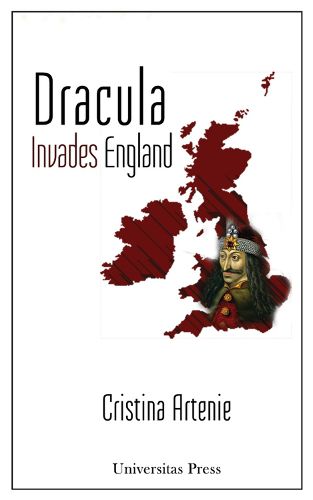Readings Newsletter
Become a Readings Member to make your shopping experience even easier.
Sign in or sign up for free!
You’re not far away from qualifying for FREE standard shipping within Australia
You’ve qualified for FREE standard shipping within Australia
The cart is loading…






This title is printed to order. This book may have been self-published. If so, we cannot guarantee the quality of the content. In the main most books will have gone through the editing process however some may not. We therefore suggest that you be aware of this before ordering this book. If in doubt check either the author or publisher’s details as we are unable to accept any returns unless they are faulty. Please contact us if you have any questions.
This study is an inquiry into the circumstances that led to the publication of Dracula, Bram Stokers 1897 novel, and into the far-reaching consequences of that publication. It is, in other words, a study of what made Dracula possible and of what was made possible by Dracula. Bram Stokers Dracula, a Count and a vampire in nineteenth-century Transylvania, is also an immortal fifteenth-century Romanian ruler. He has posed as his own offspring over many generations and is ready to invade England and create a loyal army of the undead. In real life, the historical Dracula invaded England twice through his Transylvanian offspring, the Tecks, who married into the British Royal family in 1866 and 1892. Bram Stoker was there to report it: he knew Draculas descendants personally and, in his 1897 novel, he told the story of the corruption of English blood by foreign invaders from remote Transylvania. In the nineteenth century, Draculas native lands had become a neo-colony of the British Empire and the Lower Danube was controlled by the British. This book makes the case for a postcolonial reading of Dracula by offering a fresh perspective into the historical and biographical context of the genesis of the novel, as well as an analysis of the personality of the historical character chosen by Stoker for his vampire Count. Ultimately, this study answers unequivocally the question that Dracula critics have been trying to answer in the negative: Can Dracula be analysed from a postcolonial perspective? Yes!
$9.00 standard shipping within Australia
FREE standard shipping within Australia for orders over $100.00
Express & International shipping calculated at checkout
This title is printed to order. This book may have been self-published. If so, we cannot guarantee the quality of the content. In the main most books will have gone through the editing process however some may not. We therefore suggest that you be aware of this before ordering this book. If in doubt check either the author or publisher’s details as we are unable to accept any returns unless they are faulty. Please contact us if you have any questions.
This study is an inquiry into the circumstances that led to the publication of Dracula, Bram Stokers 1897 novel, and into the far-reaching consequences of that publication. It is, in other words, a study of what made Dracula possible and of what was made possible by Dracula. Bram Stokers Dracula, a Count and a vampire in nineteenth-century Transylvania, is also an immortal fifteenth-century Romanian ruler. He has posed as his own offspring over many generations and is ready to invade England and create a loyal army of the undead. In real life, the historical Dracula invaded England twice through his Transylvanian offspring, the Tecks, who married into the British Royal family in 1866 and 1892. Bram Stoker was there to report it: he knew Draculas descendants personally and, in his 1897 novel, he told the story of the corruption of English blood by foreign invaders from remote Transylvania. In the nineteenth century, Draculas native lands had become a neo-colony of the British Empire and the Lower Danube was controlled by the British. This book makes the case for a postcolonial reading of Dracula by offering a fresh perspective into the historical and biographical context of the genesis of the novel, as well as an analysis of the personality of the historical character chosen by Stoker for his vampire Count. Ultimately, this study answers unequivocally the question that Dracula critics have been trying to answer in the negative: Can Dracula be analysed from a postcolonial perspective? Yes!